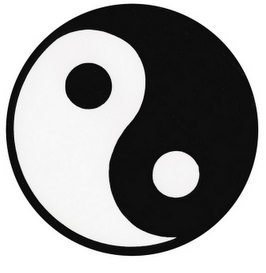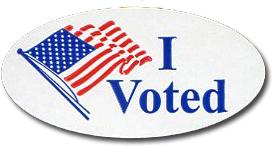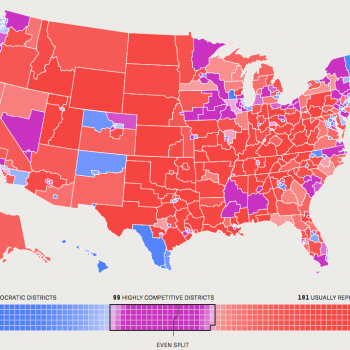Welcome to Patheos’ new Faith and Politics channel!
I think the intersection of American politics and religion is a fascinating landscape, because in our founding documents these two realms are decreed to be separate, but in practice they have a strange synergy. Our faith and our politics feed off of and cross-pollinate each other in strange and interesting ways, unique to the world and history. I find the classic Yin Yang symbol of Chinese philosophy to be a fitting symbol for how faith and politics swirl about each other and influence each other in flawless symmetry.
What are faith and politics supposed to be? In the abstract, and in practice?
Faith is Belief. In the ideal abstract, to have faith is to accept a statement as true without requiring proof. True faith can not and should not be proven – in fact noted atheist Douglas Adams seemed to understand this better than most believers, when he wrote that “proof denies faith“. However, this doesn’t mean that people of faith don’t invent complicated arguments to try to prove it, but those proofs are driven by an a-priori acceptance of what they are trying to prove. Rather than embracing their own belief, people seek to assert primacy of their belief over others’.
Politics is Reason. In theory, politics should be driven by rational debate and ideas. People interpret argument and policy through a rational process to come to an opinion on the issues of the day, and then are supposed to vote for whatever politician best adheres to those positions. However, it’s increasingly clear that as political polarization increases, the actual positions that people hold are less driven by a dispassionate consideration of the facts and more by their cultural and tribal associations, as well as their subconscious biases and prejudices.
In a strange way, then, both Faith and Politics in America are seeking to become each other. The thin line between them – the First Amendment and the separation of Church and State – acts to bind them closely so that as one shifts, the other follows and vice versa. People are compelled to prove their faith and believe in their politics rather than the other way around.
Examples of the faith aspect of this duality are better left to my religious blog, City of Brass. Here, I intend to focus on the political side, but the lesson to be learned is that no matter where politics goes, religion follows, and vice versa. Recognizing this duality is the first step towards being able to really understand what is going on in American politics, even though we rarely understand the why.












